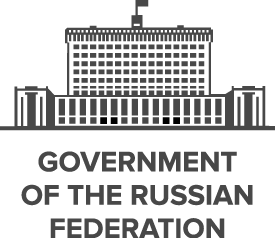Founded in the 12th century, the Principality of Muscovy was able to emerge from over 200 years of Mongol domination (13th-15th centuries) and to gradually conquer and absorb surrounding principalities. In the early 17th century, a new ROMANOV Dynasty continued this policy of expansion across Siberia to the Pacific. Under PETER I (ruled 1682-1725), hegemony was extended to the Baltic Sea and the country was renamed the Russian Empire. During the 19th century, more territorial acquisitions were made in Europe and Asia. Defeat in the Russo-Japanese War of 1904-05 contributed to the Revolution of 1905, which resulted in the formation of a parliament and other reforms. Repeated devastating defeats of the Russian army in World War I led to widespread rioting in the major cities of the Russian Empire and to the overthrow in 1917 of the imperial household. The communists under Vladimir LENIN seized power soon after and formed the USSR. The brutal rule of Iosif STALIN (1928-53) strengthened communist rule and Russian dominance of the Soviet Union at a cost of tens of millions of lives. After defeating Germany in World War II as part of an alliance with the US (1939-1945), the USSR expanded its territory and influence in Eastern Europe and emerged as a global power. The USSR was the principal adversary of the US during the Cold War (1947-1991). The Soviet economy and society stagnated in the decades following Stalin’s rule, until General Secretary Mikhail GORBACHEV (1985-91) introduced glasnost (openness) and perestroika (restructuring) in an attempt to modernize communism, but his initiatives inadvertently released forces that by December 1991 splintered the USSR into Russia and 14 other independent republics.
Following economic and political turmoil during President Boris YELTSIN's term (1991-99), Russia shifted toward a centralized authoritarian state under the leadership of President Vladimir PUTIN (2000-2008, 2012-present) in which the regime seeks to legitimize its rule through managed elections, populist appeals, a foreign policy focused on enhancing the country's geopolitical influence, and commodity-based economic growth. Russia faces a largely subdued rebel movement in Chechnya and some other surrounding regions, although violence still occurs throughout the North Caucasus.
Russia is a semi-presidential federation.
Members:
Resources
Displaying 806 - 810 of 1046Regional Law No. 29-OZ “On objects of cultural heritage”.
This Regional Law regulates relations in the sphere of conservation, management, promotion and state protection of the objects of historical and cultural heritage. Regional Administration shall carry out the following plenary powers: (a) decision-making on insertion in and exclusion from state register of the objects of cultural heritage; (b) modification of category and classification of the objects of cultural heritage; and (c) validation of the protection areas and boundaries of the areas containing objects of cultural heritage.
Regional Law No. 20-OZ “On maximum land area allotted for subsistence farming”.
This Regional Law establishes that total land area for subsistence farming that can be owned or be allotted on other conditions shall be 17 ha for each subsistence farm.
Regional Law No. 98-OZ “On land-use planning activity”.
This Regional Law regulates land-use planning activity. Regional Administration shall have the following competence: (a) decision-making of elaboration of land-use planning documentation; (b) validation of the list of mandatory land-use planning documentation; (c) validation of the composition and contents of land-use planning schemes; and (d) performance of state expertise of land-use planning projects.
Regional Law No. 344-OZ “On urban land-use planning”.
This Regional Law regulates relations in the sphere of land-use planning. Regional Government shall have the following competence: (a) land-use and territorial planning; (b) validation of land-use planning documentation; (c) issuance of authorization for construction on land parcels not covered by land-use planning documentation. It contains the list of documentation to be inserted in land-use planning projects and schemes. Regional land-use planning concepts shall cover the period of 25 years.
Regional Law No. 372-OZ “On objects of cultural heritage”.
This Regional Law regulates the issues of conservation, protection and management of the objects of cultural heritage. It establishes the sphere of competence of the regional administration and authorized state institution related to management and conservation of the objects of cultural heritage, and law enforcement in the aforesaid sphere.


